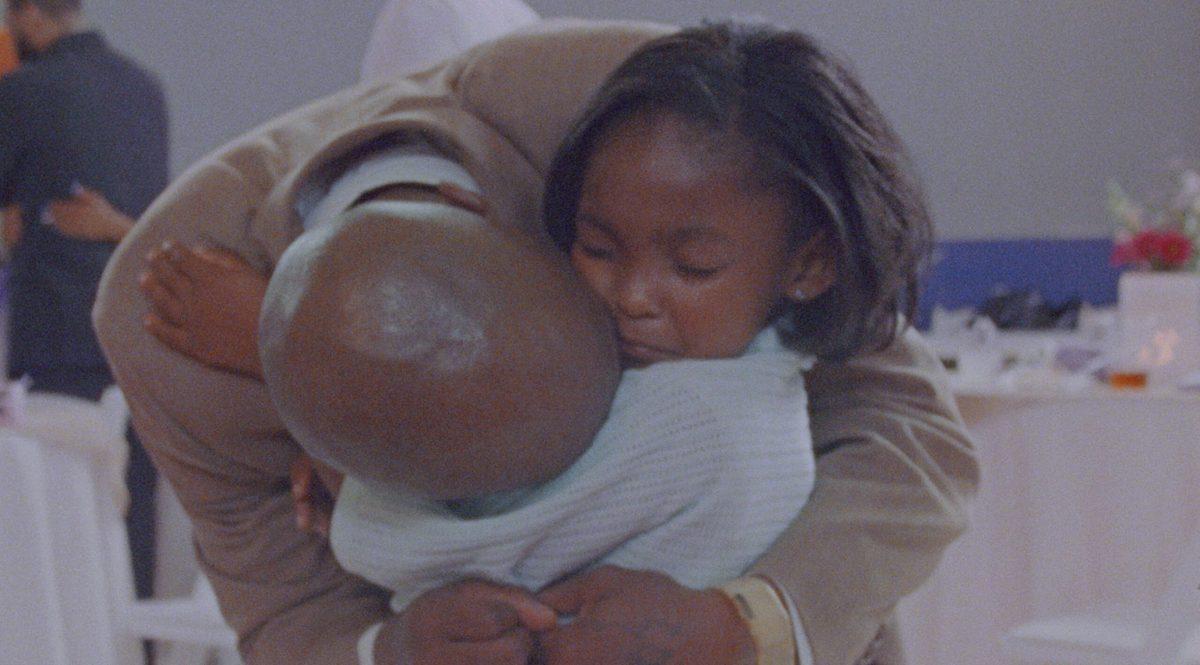
The film takes the audience on a journey through the effects of an incarcerated father’s absence in a 12-week Date with Dad program.
Men in freshly pressed, semi-formal attire sit shoulder to shoulder, waiting patiently against a concrete prison wall. Today will be the first time many of them have seen their daughters in years. When their daughters walk into the hallway where the dads sit, they appear shy yet excited. The light within the hallway becomes brighter as if the daughters were angelic in their presence. For the first time in the film, we see the reunion of the dads and daughters. Not a single eye was dry in the theater.
The film “Daughters,” first released at the 2024 Sundance Film Festival and shown at the 2024 True/False Film Fest, explores the complexities of familial relationships within the incarcerated system of the U.S. Directors Angela Patton and Natalie Rae take the viewers on a journey through the lives of four girls: Aubrey, Santana, Raziah and Ja’Ana as they prepare to see their fathers again in a special father-daughter dance within the walls of a Washington, D.C., jail.
“Daughters” documents an eight-year process and helps the audience understand the effects the daughters feel from their father’s absence.
Date with Dad, a unique fatherhood program, was introduced by Patton, CEO of the nonprofit foundation Girls for a Change, in her 2012 Ted Talk. This Ted Talk inspired many viewers, one of them Rae, who later reached out to Patton about joining the mission of helping to heal familial bonds bruised by mass incarceration.
In the Date with Dad program, the incarcerated dads of participants within the Girls for a Change program spend 12 weeks in intensive group therapy led by Chad, a fatherhood life coach, to prepare for the upcoming dance. The scenes in therapy open up a raw depiction of the emotional strain that fathers feel when they lack physical and emotional connection to their child.
Since 2014, the judicial system has slowly limited the communication between families and incarcerated people through BOP regulations. Throughout the film, there is mention of the challenges families face when trying to get in contact with their loved ones. These challenges can come in the form of fees families must make or the prohibition of visits in some prisons.
Patton and Rae stress the importance of family connection in a young girl’s life as fathers are “our mirrors,” and sends an underlying message that change must be done.
The stories of these girls and their fathers play an essential role in illustrating the effects that limited communication can have on bonds. Each of the girls express varying emotions when thinking of their father. Yet despite the hurt, anger and longing the girls feel, the strength of the love they possess for their dads prevails through it all.
“Daughters” does an amazing job showing perspectives from not only the girls, but from both parents. The dads reveal their regrets, fears and love they possess for their daughters. However, an unspoken hero is seen through the mothers of these kids as they raise them with reminders of their dad while hiding their opinions and troubles.
This film has received two Sundance awards for the Audience Award and Festival Favorite Award in addition to recently signing a deal for the film to air on Netflix. Anyone’s expectations would be high when walking into the theater to watch this film. However, walking out of the theater, you won’t know what hit you.
To say it was incredible would not do the film justice; it has exceeded my expectations in every way and shown me that parental love is the molder of humans. The love the girls have for their dads is something so powerful that it’s felt even through a screen. Their hope and bond is beautifully impacting that you can’t help but cry.
The first screening of “Daughters” at the True/False Film Fest was on Friday, and it has not disappointed. It’s set for two more showings this weekend at the Missouri Theatre.
Edited by Alex Goldstein | [email protected]
Copy Edited by Briana Iordan | [email protected]
Edited by Scout Hudson | [email protected]